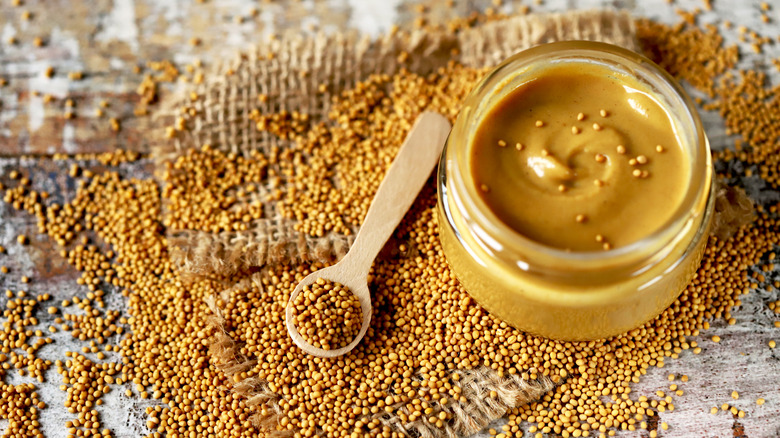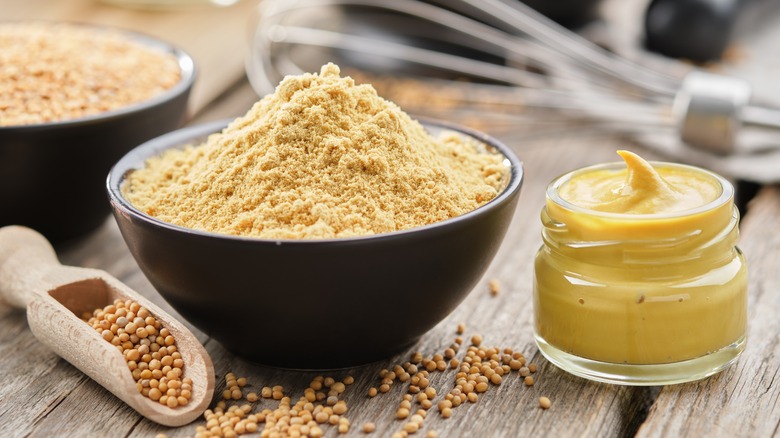How Mustard Got Its Name
If you open up your fridge right now, is there mustard inside? Mustard -honey, Dijon, or even Heinz's classic yellow- is an extremely popular condiment, one we often use on soft pretzels and hot dogs but can also work with a zippy vinaigrette, salmon, or deviled eggs. The wide range of flavors that mustard can have is also what makes this little seed so fun to play with in the kitchen. The different types of mustards all vary naturally in bitterness, pungency, and spice, and by using different processing methods, even seeds from the same family can taste vastly different. White, brown, and black mustard are the most popular kinds and can be sold whole, ground, powdered, or bruised (via MasterClass).
If you ever had the opportunity to travel to Burgundy, France in the late spring or early summer, you probably got the chance to see the mustard fields bloom bright yellow along the countryside. France, well known for its culinary excellence, has a long history with the seed, and it is rumored that French monks are responsible for how this sauce got its name!
All roads lead to Rome
It is surmised by G.S.Dunn that mustard has its roots in ancient Egypt. However, mustard is found in historical records dating all the way back to 3000 B.C.E. in Mesopotamia and most likely waws used long before because the Sumerians documented it (via Spread the Mustard). Mustard was applied in the medicinal and culinary arts for thousands of years, mainly as a general cure-all and spice. Despite where the plant might have originated, when Rome conquered much of the western world, it also conquered the mustard seed and eventually brought it to northern France.
French monks were the major wine producers in the region and were also massive landholders, growing crops for their monasteries. They named the seeds Mosto after the unfermented wine they blended with them (G.S.Dunn). The word, and all of its variations, were later anglicized into the mustard we recognize today. The name of the condiment sitting in your fridge is as old as the ideas of Rome and the seed itself is as old as human civilization.

